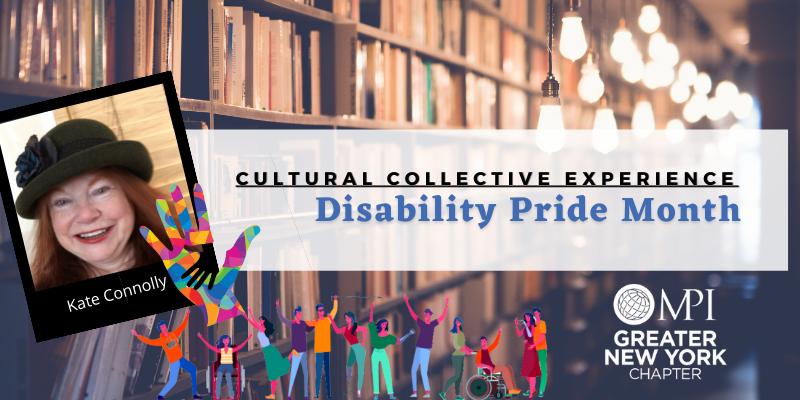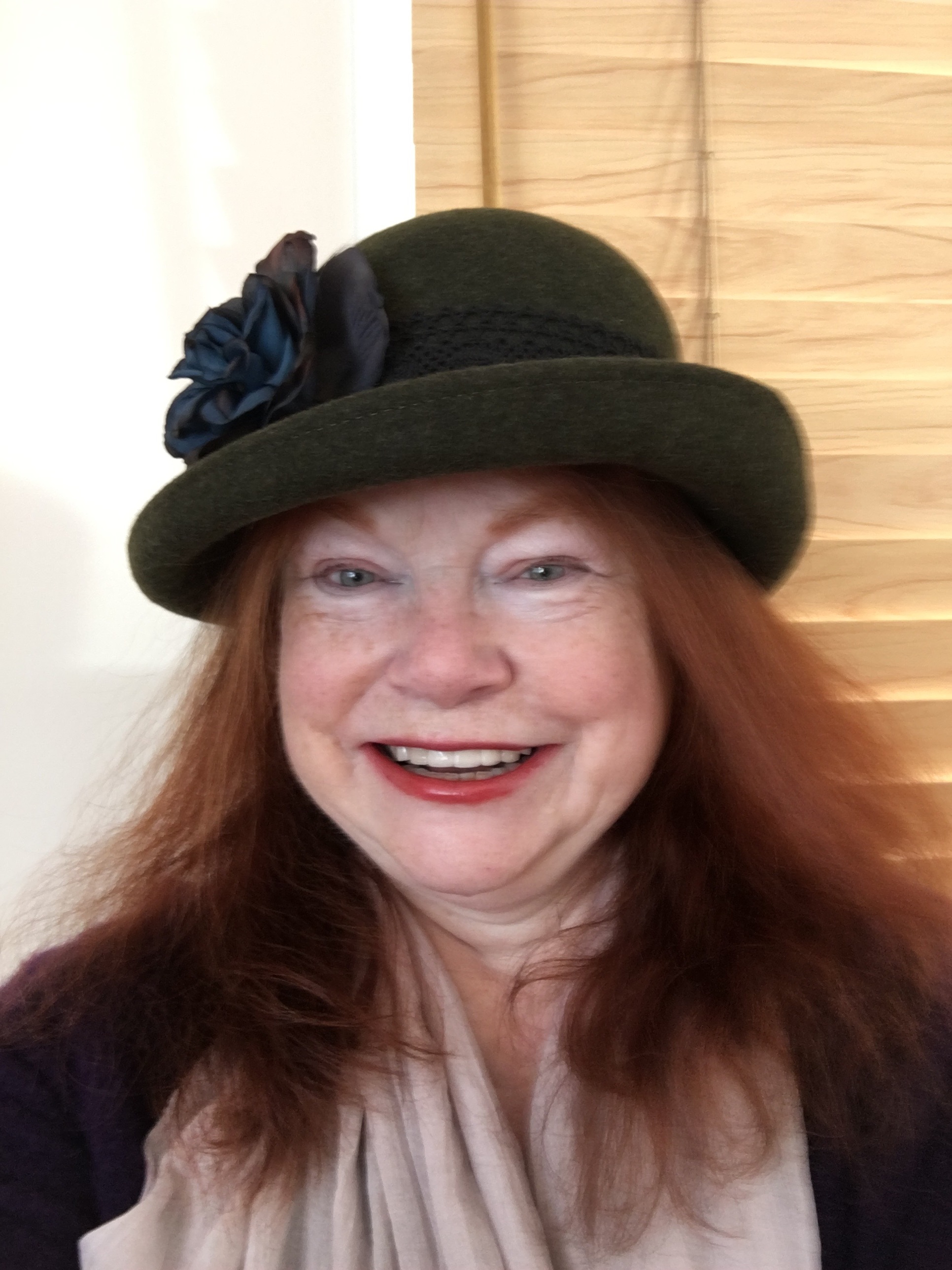February 19, 2026
MPIGNY is bringing Mardi Gras to NYC this winter!
SAVE MY SEAT
July 23, 2026
Join MPI Greater New York for our annual Golf Outing!
SAVE THE DATE

Disability Pride Month

So here’s my problem: I’m not sexy.
Granted, few of us are, especially 71-year-old women like me who have been disabled by a cluster of autoimmune diseases for over forty years. But I’m not talking about the obvious. “Sexy” has been an all-purpose adjective for quite a while. Back in the ‘80s and ‘90s, when I was struggling to keep my word processing job in an investment banking firm, the fledgling Wall Street masters of the universe would bring their endless documents to us and, as we typed, exult that the deal they were working on was “really sexy.” Out of curiosity, before starting this piece, I googled “sexy” and found a multitude of articles on “sexy” finance. Some things never change.
Fortunately some things do. July is Disability Pride month, commemorating the Americans with Disabilities Act (ADA) signed into law by President George H.W. Bush on July 26, 1990. The ADA is a great thing. Not perfect (is anything?) but definitely a blessing for those of us who need it. Without it I probably would have lost that word processing job, despite rarely being absent and having consistently excellent reviews. But Disability Pride is not yet a national celebration, and many people (including myself, I’m embarrassed to say) were not aware of it. Disability, unfortunately, is still not “sexy.”
It certainly doesn’t help that so many of us are invisibly disabled. In general people define “sick” as catching something trivial and recovering or something terrible and dying, yet thanks to modern medicine many of us do neither. Likewise “disability” is thought easily recognizable, like paraplegia or a missing limb. Yet of the sixty-one million disabled adults in this country (Center for Disease Control statistic), many contend daily with myriad physical and/or mental difficulties which are completely invisible yet completely real. I imagine those numbers have gone up in the wake of Covid; I’m thinking of the “long haulers” whose symptoms never go away. Every facet of our lives can be affected, and this lack of visibility can be almost more painful than the disease itself.
A caveat here: to fully cover all disabilities and sicknesses would need a document the length of the Encyclopedia Britannica. My life has been impacted by autoimmune diseases and cancer, and the support groups I attended and facilitated over roughly three decades were for women with these conditions. It is their stories with which I am most acquainted. Yet, the more I have researched this topic over the years, the more I am amazed not by how much the disabled and chronically ill differ, but how much we are the same.
Credibility was always one of the most popular and pervasive problems discussed in support groups. Back in the pre-computer days when I first became sick, I scoured the library, newspapers, and magazines for anything to do with chronic illness. I was desperate. I was in constant pain, constantly exhausted, and constantly told by medical personnel, family, and friends that there was nothing wrong with me and I should see a psychiatrist. It was roughly ten years before I finally received a diagnosis of a physical and legitimate illness, but that’s another story. My point is that scores of my support group friends had similar tales, and had been called crazy, lazy, or a hypochondriac. Many had spouses or lovers leave because they dreaded becoming caretakers. (To be fair, I also know women whose significant others were incredibly supportive.) The workplace added an entirely different set of problems. Should we hide our illnesses from employers and devote what little energy we had to “passing” for well, or do we explain the situation and hope for the best? Yes, the Covid lockdown proved that working from home is possible. Yet, despite the ADA, not all bosses are willing to make even minor adjustments to help their employees. Sometimes they do not even understand what the problem is.
After I graduated from seminary ten years ago, I made an appointment at my denomination’s headquarters to discuss the internship that was the next step toward ordination. I explained to the pleasant, courteous gentleman who met with me about my disabilities and that, as with so many autoimmune conditions, my illnesses wax and wane. I could, for example, be fairly well in the morning and then in the afternoon suddenly be so weak that I couldn’t even sit up. This hadn’t worried me previously. I didn’t want to be a pastor; my focus was theology and the arts. I offered several possibilities I hoped the denomination would consider, allowing me to combine online work with a part-time physical presence. I may as well have been speaking Martian. Without discussing my situation or suggestions, he told me about two interns who were managing the full schedule very well, one a paraplegic and the other with severe vision problems. I said that was wonderful but their disabilities had nothing to do with mine. He didn’t seem to understand, and just repeated his story. We traveled this circle for roughly fifteen minutes, and then the meeting was over. He wasn’t deliberately trying to make things more difficult for me. Apparently his understanding of disability was that one size fits all. I wish I could say his attitude is rare, but I know it isn’t.
At this point you may be wondering what this catalogue of aggravations has to do with Disability Pride and what it gives us to be proud about. The answer is simple.
Us.
Think about it. Obviously life is tough all over, especially lately. Yet, here we are, leading “normal” lives (or some fraction thereof), at a physical, emotional and economic cost that is almost impossible to convey to anyone on the outside. Yet we do it. Sometimes with little or no help, but we do it. We are amazing.
My dear disabled sisters and brothers, sometime this month give a loud and hearty cheer for yourselves in whatever way you can. Whether the world recognizes us or not, we have a right to be proud. (Ditto our families, friends and caregivers, should we be fortunate enough to have them.) We are adaptable. We are courageous. We are strong. We are survivors. And, yes, we are “sexy!”

Leave a commentOrder by
Newest on top Oldest on top